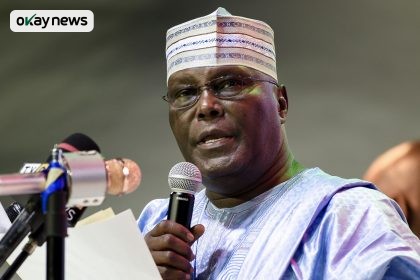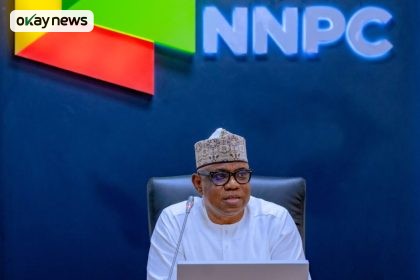The Group Chief Executive Officer of the Nigerian National Petroleum Company Limited (NNPCL), Bashir Ojulari, has disclosed that the company is on course to raise Nigeria’s crude oil output to 1.8 million barrels per day before the end of 2025.
Ojulari made this known while addressing State House correspondents after a meeting with President Bola Ahmed Tinubu at his private residence in Lagos, on Sunday night. During the briefing, he discussed the company’s performance, investment outlook, and progress towards achieving the government’s production targets for the oil and gas sector.
According to him, the company has made remarkable progress in both oil and gas production. He revealed that Nigeria recorded about 1.68 million barrels per day in September, which represents the country’s highest production figure in five years. He added that daily gas output has also reached over seven billion cubic feet, the highest in recent times.
“Mr President gave us a very clear mandate to grow production to at least two million barrels per day by 2027 and up to three million barrels per day by 2030, while also increasing gas output,” Ojulari stated.
He further explained that with the successful completion of the turnaround maintenance exercises in August and September, the company expects oil output to hit at least 1.8 million barrels per day before the year ends, barring unforeseen challenges.
“With the turnaround maintenance we concluded in August and September, we expect output to reach at least 1.8 million barrels per day by year-end, all things being equal,” he noted.
Impact of Dangote-PENGASSAN Dispute on Oil Output
Speaking about the recent industrial dispute between the Petroleum and Natural Gas Senior Staff Association of Nigeria (PENGASSAN) and the Dangote Petroleum Refinery, Ojulari said the strike negatively affected production levels and national power generation.
“It was quite unfortunate that the Dangote and PENGASSAN issue led to a strike. Whenever critical staff managing key facilities are unavailable, production is affected. In this particular case, we lost significant production of almost 200,000 barrels per day, while about 1,200 megawatts of power generation was also affected,” he explained.
Ojulari commended the Federal Government for resolving the matter swiftly through the intervention of the Minister of Labour and Employment, Muhammad Dingyadi, and the National Security Adviser, Nuhu Ribadu. He stated that most of the lost output had already been restored following the resolution.
Restoration and Future Production Outlook
“Since then, we have been able to restore a significant portion of the deferred production. There are still one or two areas where we are catching up, but overall, we are returning to status quo,” Ojulari noted.
The NNPCL chief said the company remains focused on stabilizing production and implementing measures to prevent future disruptions. He added that the organization is also intensifying collaborations with security agencies to tackle crude oil theft and ensure smooth operations across all fields.
Cooking Gas Price Hike Temporary, Says NNPCL Boss
Addressing the recent surge in cooking gas prices, Ojulari described the situation as temporary and largely artificial, attributing it to delays in logistics caused by the industrial strike.
“The increase you saw was due to delays in loading and movement during the strike, which lasted about two to three days. Naturally, some people took advantage of that situation to raise prices. Now that operations have normalized, prices should return to what they were before the strike,” he assured.
He emphasized that the company remains committed to stabilizing the domestic energy market and maintaining affordable prices for consumers.
okay.ng reports that NNPCL’s renewed focus aligns with President Tinubu’s broader economic reform agenda, which prioritizes energy security, increased revenue generation, and industrial growth through sustainable oil and gas production.
With ongoing investments and policy reforms, analysts believe Nigeria could surpass its medium-term target if stability in the sector is maintained.







